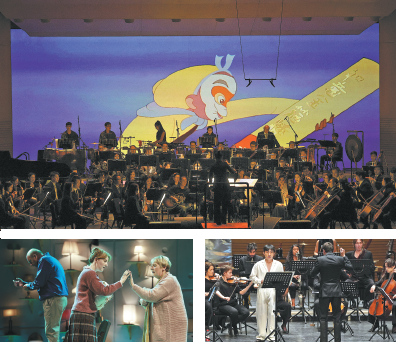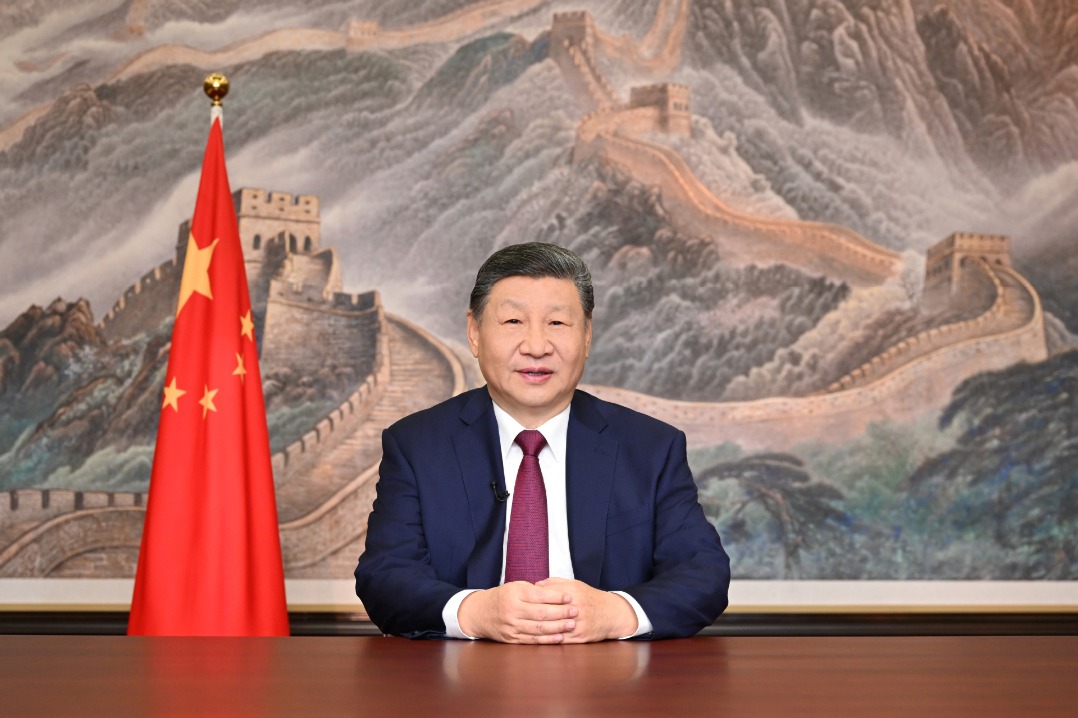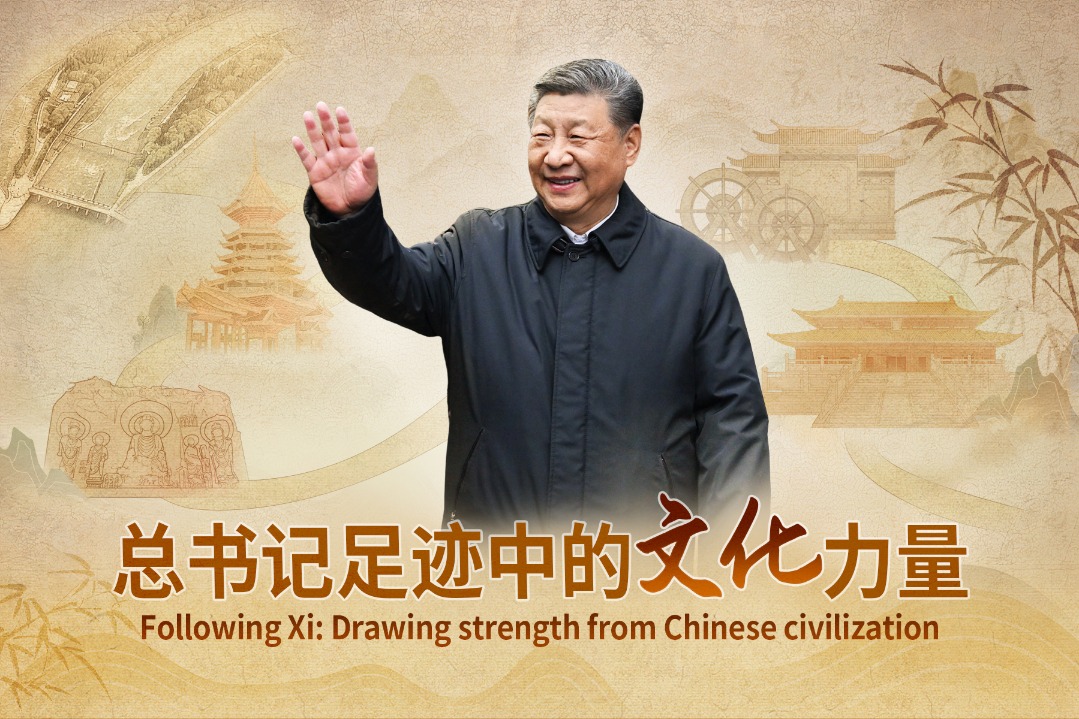Music festival celebrates classical rhythms and talent in capital

Young musicians from around the world shined onstage at the Beijing Music Festival, which spanned 24 days and concluded on Sunday.
With the theme of "Music, Youth, Future, Attitude", this year's festival combined the 25th and 26th editions into a larger event. It featured 28 performances of various classical music forms, including opera premieres, recitals, newly commissioned works and chamber music, with an emphasis on young classical musicians.
"China's classical music culture is at a turning point toward a new future," said Yu Long, chairman of the festival's artistic committee, adding that the key step is to amplify the voices of young Chinese musicians worldwide.
"The Beijing Music Festival will serve as the starting point for them to enter the global stage and contribute to a new chapter of China's music industry," Yu said.
Young musicians performing during this year's festival included the pianist Zhang Haotian, the cellist Mo Mo and the violist Mei Diyang.
Mei, 29, is the first Chinese principal viola player at the Berliner Philharmoniker. He joined hands with Berliner Barock Solisten at the Forbidden City Concert Hall on Sept 28 to perform a selection of classic music works for viola including Georg Philipp Telemann's Viola Concerto in G Major.
During the jazz concert on Sept 26, cellist Laufey Lin, whose Chinese name is Lin Bing, performed with the China Philharmonic Orchestra under the baton of conductor Jin Yukuang. Jin is 23 years old, the same age as Lin.
The Shanghai Quartet, which celebrates its 40th anniversary this year, returned to the festival on Oct 2, presenting masterpieces such as Igor Stravinsky's Pulcinella Suite and John Adams' Absolute Jest with the Shanghai Symphony Orchestra. The concert was conducted by 29-year-old Sun Yifan.
"The BMF has been committed to the growth of young musicians and spurring their imagination and innovation with great freedom," said Zou Shuang, the artistic director of the festival.
This year's festival is a perfect platform for musical communication and exchanges and a grand gathering of young musicians from home and abroad, Zou added.
From Oct 10-13, the Mahler Foundation Festival Orchestra, which consists of young musicians from different European countries, performed three concerts themed "Dialogue with Mahler", under the baton of the young conductor John Warner from the United Kingdom.
New pieces from young Chinese and Western composers such as Li Zhenyan, Wang Feinan and Sasha Scott were staged. Young Chinese singers including falsetto tenor Liu Kun and baritone Wang Yunpei, as well as pianist Ju Xiaofu joined in the concerts.
Since its launch in 1998, the BMF has staged many works with Chinese characteristics and made sustained efforts to promote folk music and expand international exchanges.
This year's festival opened with a concert featuring the world premiere of the symphonic suite Homage to Liu Tianhua, in memory of China's modern music pioneer Liu Tianhua (1895-1932) and the 101st anniversary of the founding of the Peking University Music Training Institute.
The piece was composed by Zou, based on Liu's instrumental music, and played by the China Philharmonic Orchestra in collaboration with the Beijing Chinese Orchestra.
"I was deeply moved by the concert," Zou said. "I wrote it not only to commemorate the institute but pay tribute to every generation of Chinese musicians over the past century."
Another highlight of the festival is the symphonic dance The Monkey King, composed by Liu Suola, drawing inspiration from a classic animated movie of the same name.
The composition weaves together numerous traditional Chinese music elements, with Chinese percussion instruments resonating through all nine movements, punctuated by piano and pipa (a four-stringed Chinese lute).
"Both of the commissioned works demonstrate our reverence to the country's profound historical culture and to our predecessors, dedicated to preserving and promoting traditional culture," Yu said.
"Our generation of Chinese musicians must create works of the era and pass them down to future generations," he added.
Focusing on the other two keywords — future and attitude — the festival offered musical works and experiences highlighting innovation and digital technologies, earning rave reviews from the audience.
On Sept 30, Beijing's Poly Theatre staged Pastoral for the Planet, a visual symphony by Spanish avantgarde theater troupe La Fura dels Baus.
The multimedia concert integrated performance, visuals, installation and sound, while interacting with viewers via a mobile application to raise their awareness of environmental protection.
From Oct 4-6, three concerts were held at the Divine Music Administration of the Temple of Heaven, the highest ritual music academy during the Ming and Qing dynasties (1368-1911), and broadcast through Beijing Music Radio.
These included Eighteen Songs of a Nomad Flute by singer Gong Linna and sheng (a Chinese free reed wind instrument) player Nie Yunlei; a chamber music concert by three musician couples from Beijing and Hong Kong; and an art song concert by Chinese tenor Mo Hualun and pianist Chen Yu.
For the festival's closing concert, the BMF Festival Orchestra Gala was held on Sunday at Poly Theatre, under the batons of Jin and Warner.

Today's Top News
- Full text: Chinese President Xi Jinping's 2026 New Year message
- Poll findings indicate Taiwan people's 'strong dissatisfaction' with DPP authorities
- Xi emphasizes strong start for 15th Five-Year Plan period
- PLA drills a stern warning to 'Taiwan independence' separatist forces, external interference: spokesperson
- Xi, Putin exchange New Year greetings
- ROK leader's visit to help boost bilateral ties






























